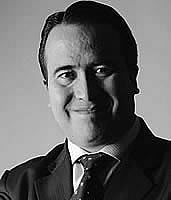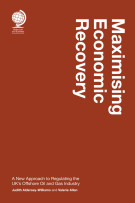
- From reading the introduction to your book, you seem to be passionate about public procurement. What is it about the field that attracts you?
I have practiced in this area of law for more than 15 years, and every day I find new challenges. I am always fascinated by the conflict between private and public interests and how the actors involved -governments as much as contractors and suppliers - have to achieve their goals and find new ways to improve the systems available to them. Every day, clients present different problems to solve and new aspects to consider.
- What do you think the main impact of the financial crisis has been on government procurement?
In many countries, the financial crisis has led to government procurement being used as a way to support the economy. As far as I know, in many countries it is working, while in others it has had no real results. This is because the private sector has limited its operations, while the state not only cannot stop, but considers public procurement to be a positive public policy.
- The book refers to corruption in public procurement, which threatens competition, transparency and other fundamentals of procurement regimes. How big a problem is corruption and what would be your top tips for countries trying to combat corruption in procurement?
It is a serious problem. People think corruption in public procurement is just about giving money to government representatives in order to secure a contract. It is more than that. There is the issue of consultants, agents and other figures that intermediate in corruption. The problem also includes conflicts of interest. We must remember that public money comes from the taxpayer, so every act of corruption or conflict of interest affects society in general.
- The book features contributions from a number of key jurisdictions. Were you struck more by the differences or the similarities in the procurement regimes?
I was struck less by the differences or similarities than by the very important messages that the co-authors gave regarding the issues that have arisen in their own jurisdictions and fields of experience. One particularly interesting contribution - on the use or abuse of framework agreements - explains why this mechanism, which many regard as a model solution, may still result in obscure and inefficient procurement methods. Another wonderful message is that, notwithstanding the content of particular laws, the important thing is for public procurement officers and companies to have the training and the ethical basis to apply procurement systems and methods efficiently for the good of society.
- From your experience of procurement in Mexico, what would you say are the three most positive aspects of the developing procurement regime?
First, I think a clear and precise legal regime is absolutely essential. This also means people knowing what the applicable regulations are and where they can be found.
Second, I think that government officers and private companies must understand that procurement is about the satisfaction of public needs. However, this does not mean that any of their rights can be forgotten or badly managed. I find in my training programmes that people who have worked in procurement for 15 or 20 years often do not understand the essence of procurement.
Third, I think there needs to be a good balance between control and efficiency. Mexico's public regime has been criticised for being controlling , whereas an efficient system is really what is needed.
- What do you think are the main challenges in developing best practice in procurement regimes?
The most important thing is to make sure that the participants feel that their rights and obligations are clear, thanks to a transparent legal regime. Second, to ensure that the participants are professionally trained with strong ethical values. Third, to try to solve the issues that arise under the public procurement regulations through the use of objective mechanisms. Fourth, to ensure that public officials do not have a negative view of dispute resolution and that private companies do not abuse the dispute resolution methods available in public procurement.
- How do you see the field of international public procurement developing?
I see more people being interested in the field now than ever before. More people are involved in this area, with greater knowledge and greater interests at stake. In the UNCITRAL Working Group, I am hugely encouraged that the discussions try to focus on how to put developed and developing countries' regimes on the same level. This means there is a real concern for all countries to have a good procurement system.
Nevertheless, public procurement around the world faces many specific challenges, such as the appropriate application of e-procurement, green procurement, the issue of cartels and, of course, the political dimension. When procurement is linked less to politics and more to what is really needed, the world will have better standards of international public procurement.
- What do you think this book gives its readers?
As the book itself explains, it is a document that aims to show what is working around the world. It is a way to help someone with an interest in the subject to derive positive ideas and lessons. While other books are merely descriptive, this book shows how to do things better.
- How has the book been received?
So far, the book has been presented in the Paris Bar and before the Barcelona College of Lawyers, and in Mexico we will have various presentations. I think the expertise of the contributors, the timely lessons contained in the book and the worldwide interest in the subject have resulted in it being extremely well received.







